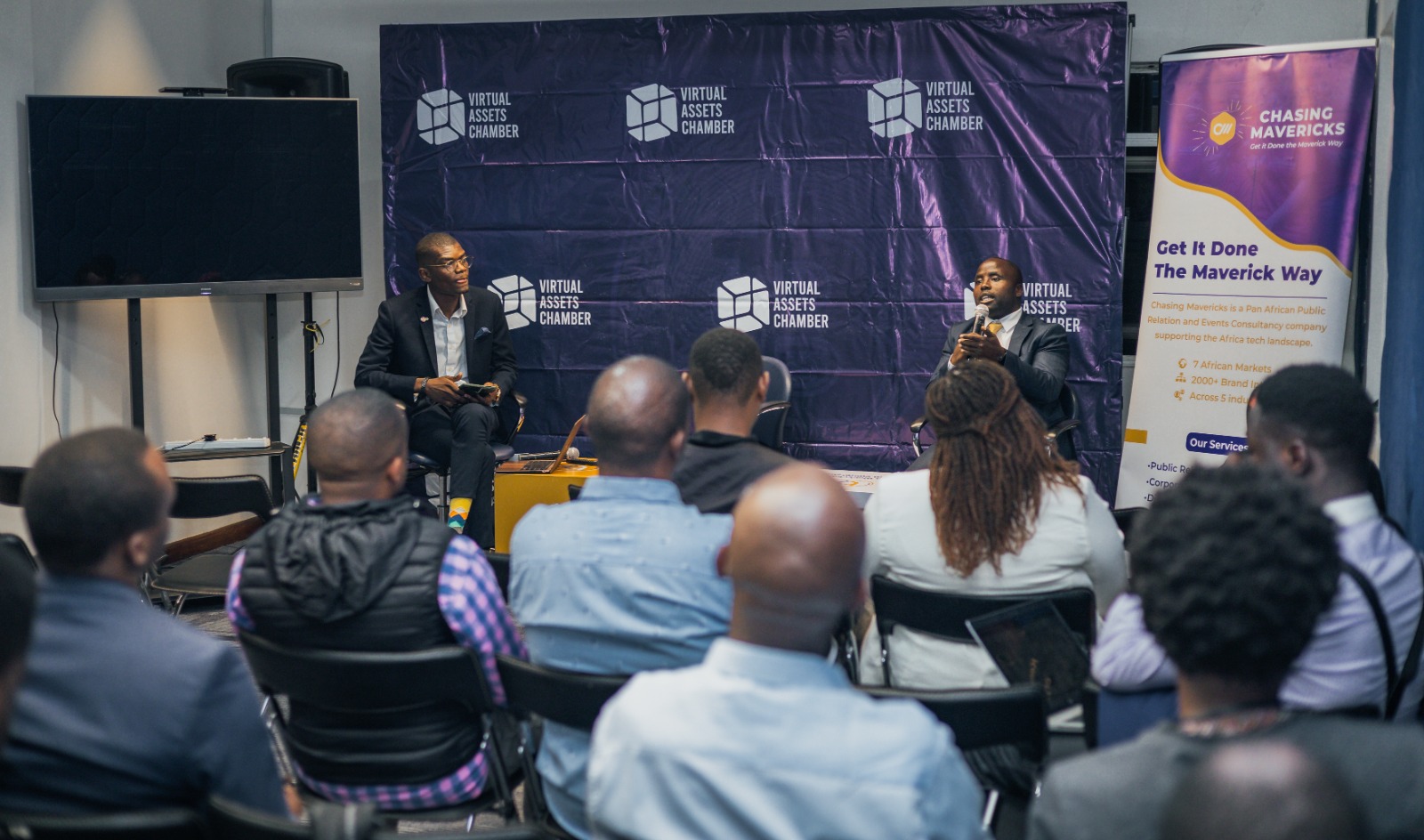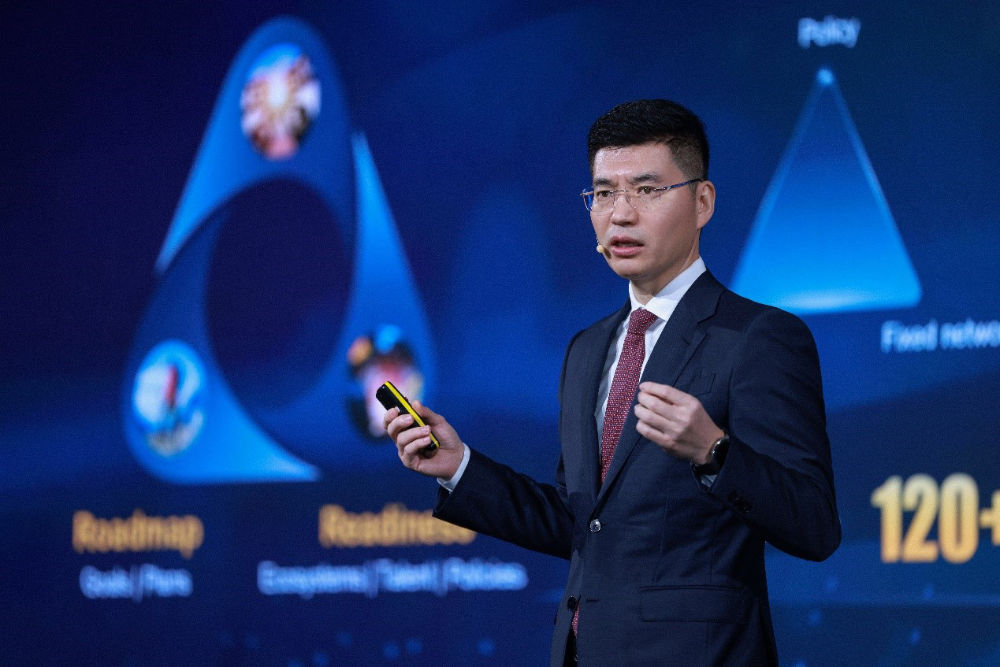The Digital Asset Tax Roundtable, hosted by the Virtual Asset Chamber of Commerce in partnership with Chasing Mavericks and the Kenya Blockchain & Crypto Conference, brought together key stakeholders in the digital asset space and the Kenya Revenue Authority (KRA) to discuss emerging tax regulations in the crypto sector.
The roundtable focused on addressing the complexities of tax compliance in the rapidly evolving digital economy.
During the event, S.A. Kakai, Policy and Regulatory Engagement Lead, Virtual Asset Chamber of Commerce, opened the discussion by highlighting critical issues surrounding the 3% tax on cryptocurrency transactions.
He pointed out the KRA’s recent proposal for an automated tax collection solution but raised concerns about the legal frameworks and the broader tax policy that need to be considered.

Mr. Kakai stressed the importance of ensuring that businesses continue to thrive despite the tax obligations imposed on them. He also mentioned there are challenges that are yet to be spoken about and an implementation process that still needs to be addressed.
Nixon Omondi, Manager – Digital Economy Tax Office, KRA, provided a detailed explanation of the recent tax regulations under Section 12 of the Income Tax Act, which came into effect on September 1, 2023.
He also revisited the 2021 Digital Service Tax (DST), which initially targeted non-resident digital companies but has since been expanded to cover both resident and non-resident entities dealing with digital assets, including cryptocurrencies.
“The plain reading of the law mandates that these entities must be taxed,” Mr. Omondi explained, illustrating the legal basis for taxing digital asset transactions.
However, Mr. Omondi acknowledged the difficulties businesses face in complying with the law, particularly in tracking daily transactions within the five-day tax payment window.
He highlighted KRA’s efforts to introduce automation and integration solutions to ease the compliance process.
“It would be easier to pay tax as soon as possible to enhance compliance and to assist people to uphold compliance,” he said.
He emphasized that advancing technology would eventually close the gap on tax evasion in the digital assets space. He also mentioned the potential of the Crypto Reporting Framework to streamline tax compliance.
He further elaborated on KRA’s strategy to work with cryptocurrency exchanges, suggesting that Advance Pricing Agreements (APAs) could be integrated into the tax collection process.
He noted that exchange companies have been encouraged to engage with KRA to clarify their preferred methods for handling tax compliance.

“Once you pay the 3% Digital Assets Tax, it is the final tax that one will need to pay,” Mr.Omondi stated, though he added that the commissioner’s interpretation remains open to challenge until a final ruling is made.
One of the audience, Apollo Sande, Country Launch Specialist, Luno, suggested that the proposals touching on Sections 65 and 66 of the Tax Procedures Act Act should be presented to the Tax Commissioner.
“To thrive, Africa’s crypto industry must proactively collaborate with regulators. Engaging revenue authorities and policymakers is key to fostering a sustainable environment where cryptocurrency can achieve its potential for financial inclusion and economic empowerment.”
Sheila Waswa, CEO of Chasing Mavericks and co-conveners of the Digital Assets Stakeholders Forum alongside the Virtual Asset Chambers of Commerce, are calling on government agencies and regulators to collaborate in creating policies that foster innovation in the blockchain space.
Sheila stated, “By working together, we can ensure that this technology thrives in a well-regulated environment, promoting both innovation and compliance.”
The roundtable concluded with agreement on the need for continued dialogue between the Web3 community and the KRA.

Both parties agreed that more engagement is necessary, particularly with the National Treasury, to refine the tax policies for digital assets. The formation of a dedicated working group was also discussed, with a focus on addressing the challenges raised during the session.
Key Outcomes and Next Steps:
– Open Dialogue: Acknowledgement of the need to continue discussions around the proposals put forward by the Web3 community which shall be led by the Virtual Assets Chamber. The Virtual Assets Chamber shall lead industry players to initiate applications for consideration to the tax commissioner under sections 65 and 66- Engagement with the National Treasury: The Virtual Assets Chamber shall advance conversations with the National Treasury to ensure the proposed tax policies reflect the needs of the digital asset sector.
– Future Meetings with CMA: The Virtual Assets Chamber shall convene the next roundtable between the Capital Markets Authority and the Web3 community to explore the next steps in shaping a sandboxing and licensing framework.
The event concluded with a call for collaboration, with both the KRA and digital asset stakeholders agreeing to work together to streamline tax compliance in a way that supports innovation while ensuring transparency and fairness in Kenya’s rapidly growing digital asset space.



